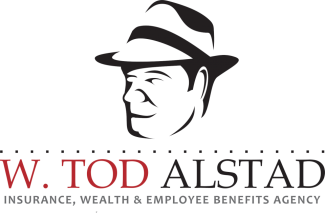Disability Protection
It happens when you least expect it - a fall from a ladder, a skiing accident, a serious illness- no one plans to become disabled. As a result, very few people have set up contingencies for covering themselves when their income stops. Some people are under the mistaken impression that other insurance plans cover long-term disabilities. In reality, some may cover short-term disabilities, but few cover long-term disabilities.
The biggest risk to your financial future is the possibility of losing your earnings due to an injury or an extended illness that prevents you from working. In fact, nearly one in three people between the ages of 35 and 65 will suffer some sort of disability which will keep them from working for at least 90 days. Yet this is the one risk that, for most people, remains unprotected.
Perhaps the biggest misconception people have is that the government will step in to provide coverage in the case of a disability. And that is typically just not the case.
Disability Income Insurance
Insurance is designed to provide the capital needed after a loss, when individuals cannot afford to provide it on their own. Such is the case with the loss of a life, a home, or a car due to an unforeseen event. Most people cannot afford to replace their income from their own savings, which is where disability income insurance comes in.
Disability income policies are designed to replace a portion of your income. Some will cover as much as 70%, and the income benefits may be exempt from taxes. However, it is not inexpensive coverage, and not everyone can qualify for it.
Disability Policy Basics
Definition of disability: This is how the insurer determines whether a disability is covered. Some definitions are so strict so as to preclude the payment of benefits. The more broad the definition, the more likely the benefits will be paid.
Waiting Period: There is usually a period of time that must elapse between the disability claim and the first payment. The length of the waiting period might be selected by the insured and it should be based on the capacity to meet short-term living needs before the benefits are needed. Generally, the longer the waiting period the lower the premium cost.
Benefit Period: This determines how long the benefits are to be paid. Benefit periods of two years to five years are typical. Generally, the longer the benefit period the higher the premium cost.
Disability insurance is a specialty coverage that can be purchased from a few insurance companies. To ensure that you are getting the best guidance and have access to high quality plans, it’s best to work with someone who specializes in disability insurance.
Work with a Disability Income Specialist
Over the last couple of decades, a number of insurance carriers exited the disability insurance market because it had become so specialized, and, frankly, expensive to manage. If you consider only the top, most highly rated disability insurance carriers, there are only about six or seven left. Disability insurance has become a specialty, and it would be important to work with someone with expertise and experience, and access to the top tier disability insurance carriers.

